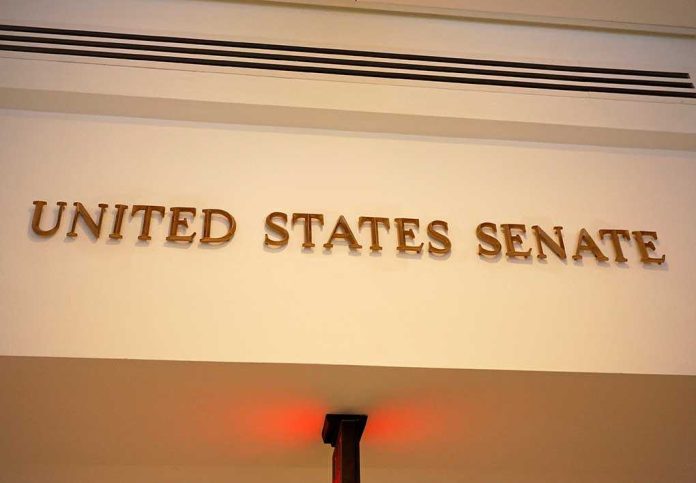
A Senate candidate’s takedown of a Democrat’s gun control narrative after a tragic Catholic school shooting has ignited fierce debate over rights, blame, and political opportunism in Kentucky.
Story Highlights
- Nate Morris, GOP Senate candidate, sharply criticized Chuck Schumer for blaming a Catholic school shooting solely on gun violence.
- Schumer’s response follows a pattern where Democrats push for stricter gun control after high-profile shootings.
- The incident has become a flashpoint in Kentucky’s 2026 Senate race, with both sides using it to rally their bases.
- Debate over gun rights, school safety, and political framing intensifies among Kentucky voters and national observers.
Direct Confrontation Over Framing School Tragedy
Nate Morris, a prominent Kentucky businessman and Republican Senate candidate, openly challenged Senate Majority Leader Chuck Schumer’s assertion that a recent Catholic school shooting was simply a result of gun violence. Morris argued that attributing such tragedies solely to firearms ignores deeper societal and cultural factors, a stance resonating with many conservatives who see repeated efforts to restrict Second Amendment rights as misguided and politically motivated. The exchange quickly became a defining moment in Kentucky’s increasingly contentious 2026 Senate campaign.
#MAGA KY Sen Candidate Nate Morris Destroys Democrat Gun Control Argument.
Democrats are so predictable.
https://t.co/1M8N5hvXd6— CombsJC (@RedState66) August 27, 2025
The shooting provided a catalyst for both parties to draw sharp contrasts. Schumer’s call for stricter gun laws followed a well-worn Democratic playbook, while Morris’s rebuttal reflected a broader frustration among Kentucky voters with what they perceive as knee-jerk legislative overreach. Both candidates used the tragedy to reinforce their political identities: Schumer as a gun control champion, Morris as a defender of constitutional and family values under attack.
Conservative Values and the Gun Debate in Kentucky
Kentucky, a deeply conservative state with strong support for gun rights and traditional values, has long been a battleground for national debates over firearms and school safety. Schumer’s focus on gun control was met with skepticism from many in the state, who see such measures as threats to personal liberty and ineffective at addressing the root causes of violence. Morris’s criticism resonated with voters wary of what they consider “woke” agendas and government overreach, especially when tragedies are invoked to justify sweeping policy changes.
Past incidents have shown that attempts to curtail gun ownership often backfire politically in states like Kentucky, mobilizing grassroots opposition and energizing conservative advocacy groups. The Catholic context of the shooting introduced an additional layer of sensitivity, with faith communities expressing concern over both the safety of schools and the integrity of their values in public discourse. Morris’s campaign seized on these themes, portraying his stance as a bulwark against efforts to erode family, faith, and constitutional protections.
Broader Political and Social Implications
The fallout from this confrontation extends beyond campaign rhetoric. In the short term, it has intensified polarization in the Kentucky Senate race, driving media attention and activating voters on both sides of the issue. Long-term, the debate could shape not only the election outcome but also the trajectory of gun policy discussions in the state and nationally. Increased focus on school security, mental health, and cultural influences is likely, especially as conservative leaders push back against what they view as simplistic or opportunistic blame narratives.
MAGA KY Sen Candidate Nate Morris Destroys Dem Gun Control Argument!
He actually goes there and addresses the problem with school shooters being trans.
This is the discussion we need to have, not gun control.😉 https://t.co/nFgAgz6irb— NWRain-Judi (@RYboating) August 27, 2025
Expert analysis notes that such high-profile disputes often set the tone for subsequent legislative debates, campaign messaging, and public opinion on gun rights. Some commentators argue that reducing complex tragedies to single-issue blame—such as guns alone—fails to address underlying problems and alienates communities seeking genuine solutions. Others, particularly in national media, maintain that firearm access remains a central concern. The lack of detailed public reporting on this specific incident highlights the need for careful, fact-based coverage as campaigns and advocacy groups seek to sway public sentiment in a critical election year.
Sources:
Nate Morris Wikipedia profile (background, candidacy, business career, and political context)




